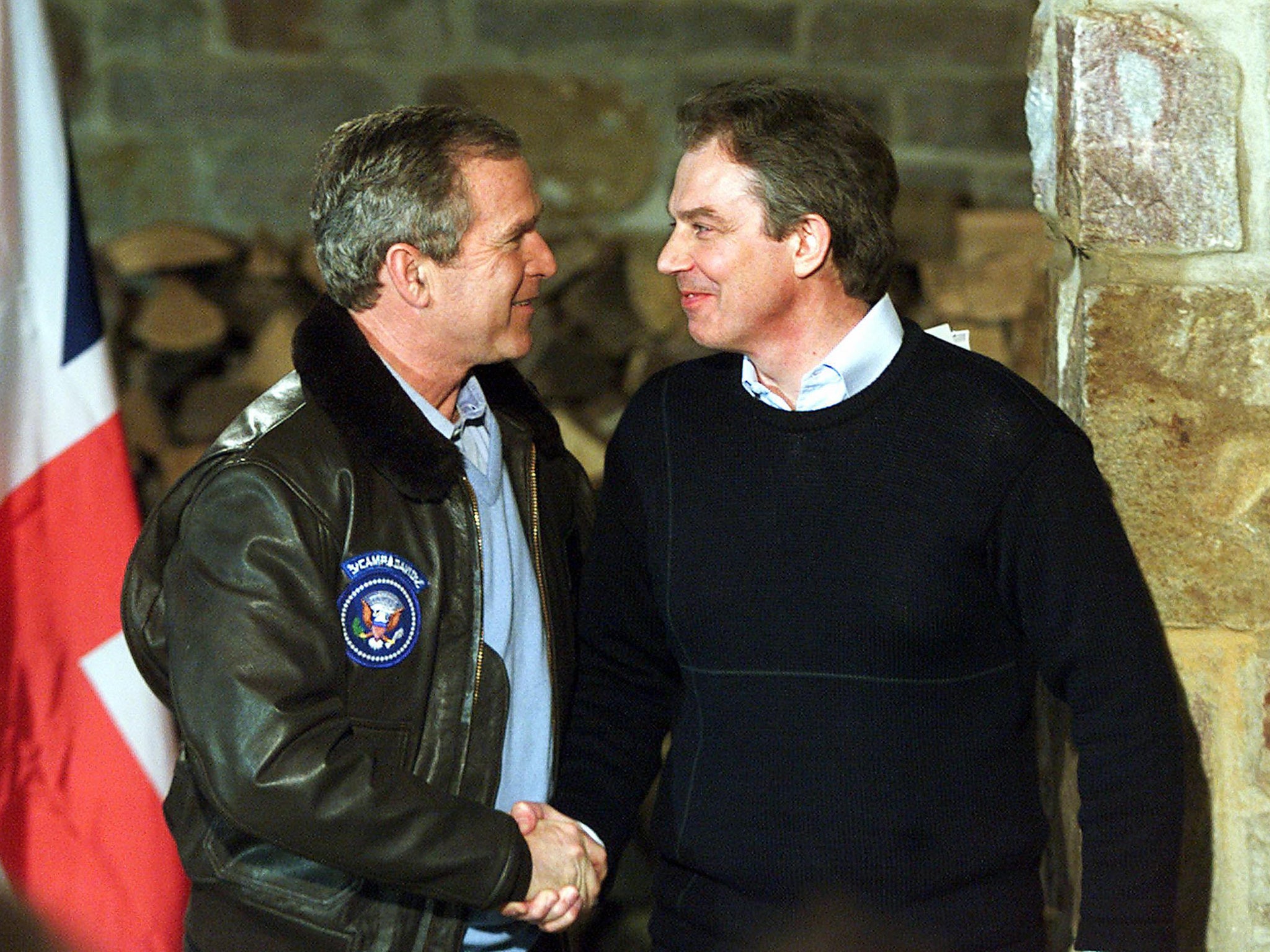Tony Blair has already apologised for aspects of Iraq War, his spokesperson insists
The former PM's message has been inconsistent, however

Your support helps us to tell the story
From reproductive rights to climate change to Big Tech, The Independent is on the ground when the story is developing. Whether it's investigating the financials of Elon Musk's pro-Trump PAC or producing our latest documentary, 'The A Word', which shines a light on the American women fighting for reproductive rights, we know how important it is to parse out the facts from the messaging.
At such a critical moment in US history, we need reporters on the ground. Your donation allows us to keep sending journalists to speak to both sides of the story.
The Independent is trusted by Americans across the entire political spectrum. And unlike many other quality news outlets, we choose not to lock Americans out of our reporting and analysis with paywalls. We believe quality journalism should be available to everyone, paid for by those who can afford it.
Your support makes all the difference.Tony Blair has previously apologised for aspects of the Iraq War, a spokesperson for Tony Blair’s office has said.
The former PM’s office downplayed his latest apology said that he had not changed his position.
“Tony Blair has always apologised for the intelligence being wrong and for mistakes in planning. He has always also said, and says again here, that he does not however think it was wrong to remove Saddam,” she said.
In 2004 Mr Blair told the Labour Party's annual conference: “I can apologise for the information that turned out to be wrong, but I can't, sincerely at least, apologise for removing Saddam.”
Mr Blair’s message has been inconsistent, however. In 2007 he said “I don’t think we should be apologising at all for what we are doing in Iraq … I don't think we should be apologising because we're not causing the terrorism.”
In a documentary interview for CNN to be broadcast on Monday, Mr Blair said “I apologise for the fact that the intelligence we received was wrong.
“I also apologise, by the way, for some of the mistakes in planning and certainly, our mistake in our understanding of what would happen once you removed the regime. But I find it hard to apologise for removing Saddam.”
The comments were widely interpreted to refer to the rise of Isis after the fall of Saddam.
However, this interpretation was disputed by Mr Blair’s spokesperson.
“He did not say the decision to remove Saddam in 2003 ‘caused Isis’ and pointed out that Isis was barely heard of at the end of 2008, when al-Qaida was basically beaten. He went on to say in 2009, Iraq was relatively more stable," she said.
“What then happened was a combination of two things: there was a sectarian policy pursued by the government of Iraq, which were mistaken policies.
“But also when the Arab spring began, Isis moved from Iraq into Syria, built themselves from Syria and then came back into Iraq. All of this he has said before.”
Join our commenting forum
Join thought-provoking conversations, follow other Independent readers and see their replies
Comments